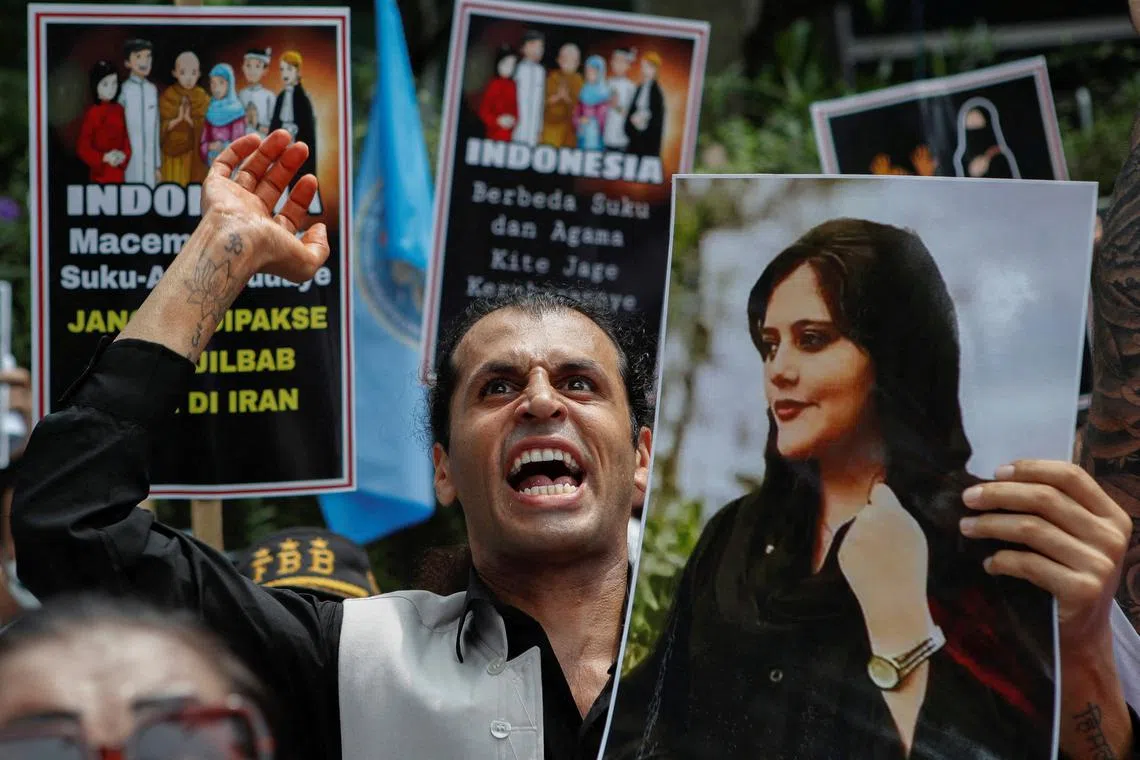Mahsa Amini’s death in Iran custody ‘unlawful’, says UN mission
Sign up now: Get ST's newsletters delivered to your inbox

Ms Mahsa Amini’s death in September 2022 unleashed months of mass protests across Iran.
PHOTO: REUTERS
Follow topic:
GENEVA - A fact-finding mission mandated by the United Nations said on March 18 the death of Ms Mahsa Amini in the custody of Iran’s morality police was “unlawful” and caused by violence, and that Iranian women still suffer systematic discrimination.
The death of 22-year-old Ms Amini
Her death marked the biggest challenge to Iran’s clerical leaders in decades.
“Our investigation established that her death was unlawful and caused by physical violence in the custody of state authorities,” Ms Sara Hossain, chairwoman of the Independent International Fact-Finding Mission on Iran, told the UN Human Rights Council in Geneva.
The fact-finding mission found the protests that followed were marked by extrajudicial executions, arbitrary arrests, torture and ill-treatment, as well as rape and sexual violence.
“These acts were conducted in the context of a widespread and systematic attack against women and girls, and other persons expressing support for human rights,” Ms Hossain said.
“Some of these serious violations of human rights thus rose to the level of crimes against humanity.”
In response, Mr Kazem Gharib Abadi, secretary-general of Iran’s High Council for Human Rights, accused the fact-finding mission of a “glaring lack of independence and impartiality”.
In separate comments to the Human Rights Council, Mr Javaid Rehman, the UN Special Rapporteur on the human rights situation in Iran, said jailed human rights defender Narges Mohammadi “suffers from severe health issues, including serious heart and lung conditions, placing her health at great risk”.
“She was denied medical access because she did not have the mandatory hijab,” Mr Hossain said about Mohammadi, who won the Nobel Peace Prize in 2023.
Ms Hossain said that since the protests, women and girls in Iran have been confronted daily by discrimination “affecting virtually all aspects of their private and public lives”.
“It is hard to fathom that in the 21st century, women’s access to the most basic service and opportunities, such as schools, universities, hospitals, and courts, or to opportunities for employment in government or other sectors, should be subjected to a wholly arbitrary requirement of wearing the mandatory hijab,” she said. REUTERS

